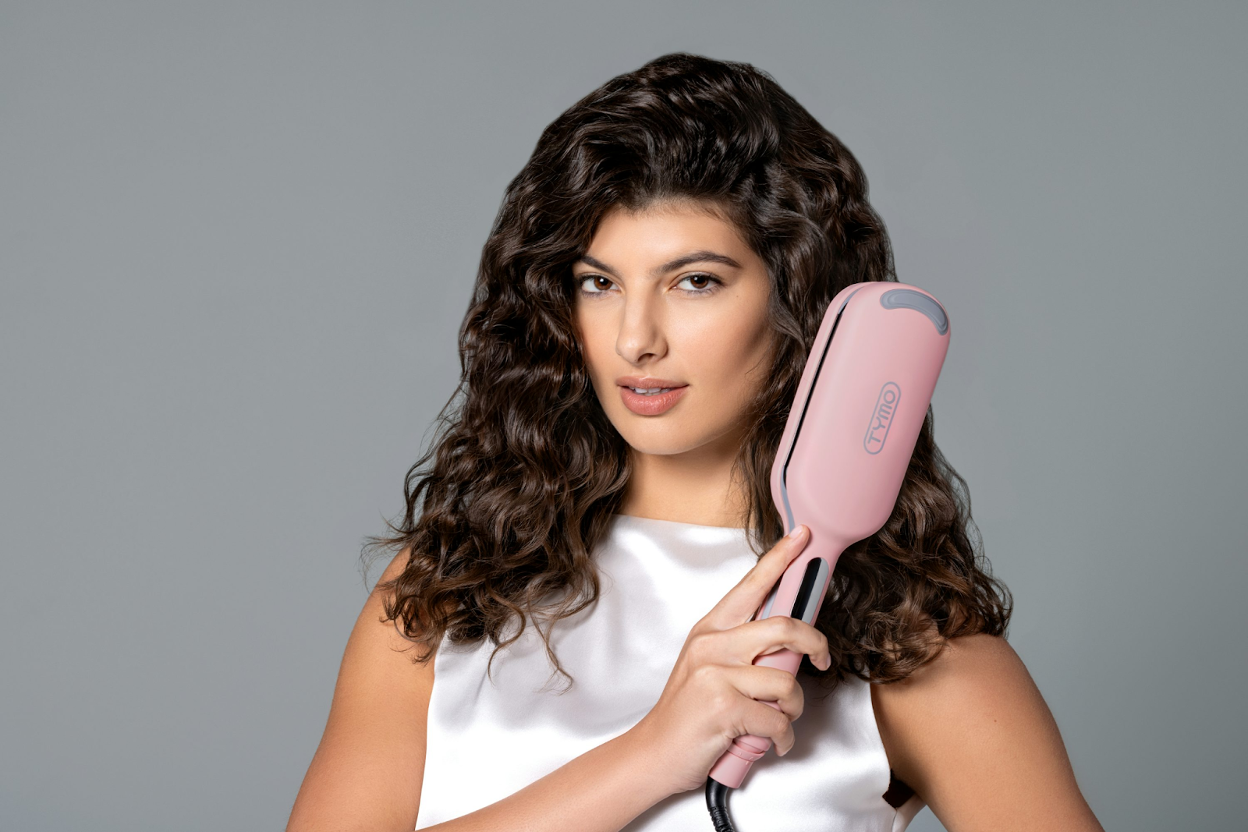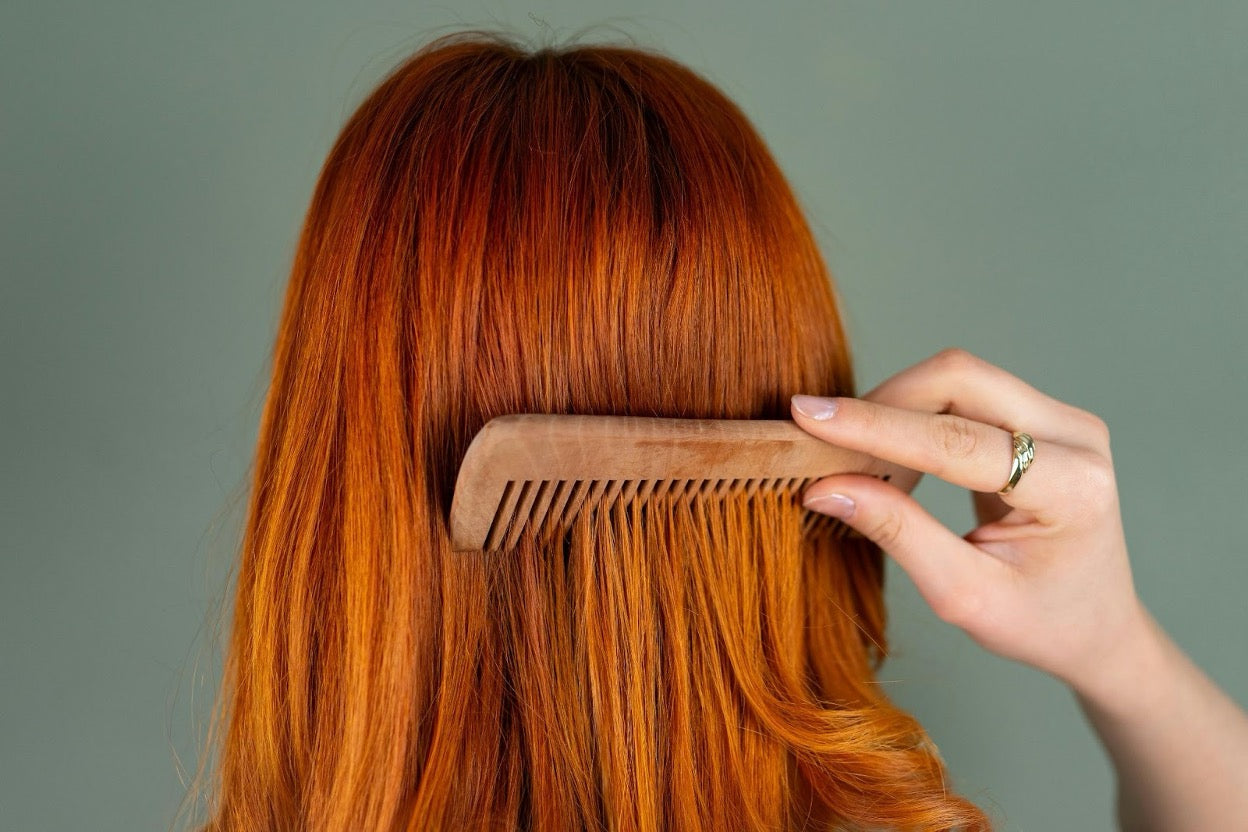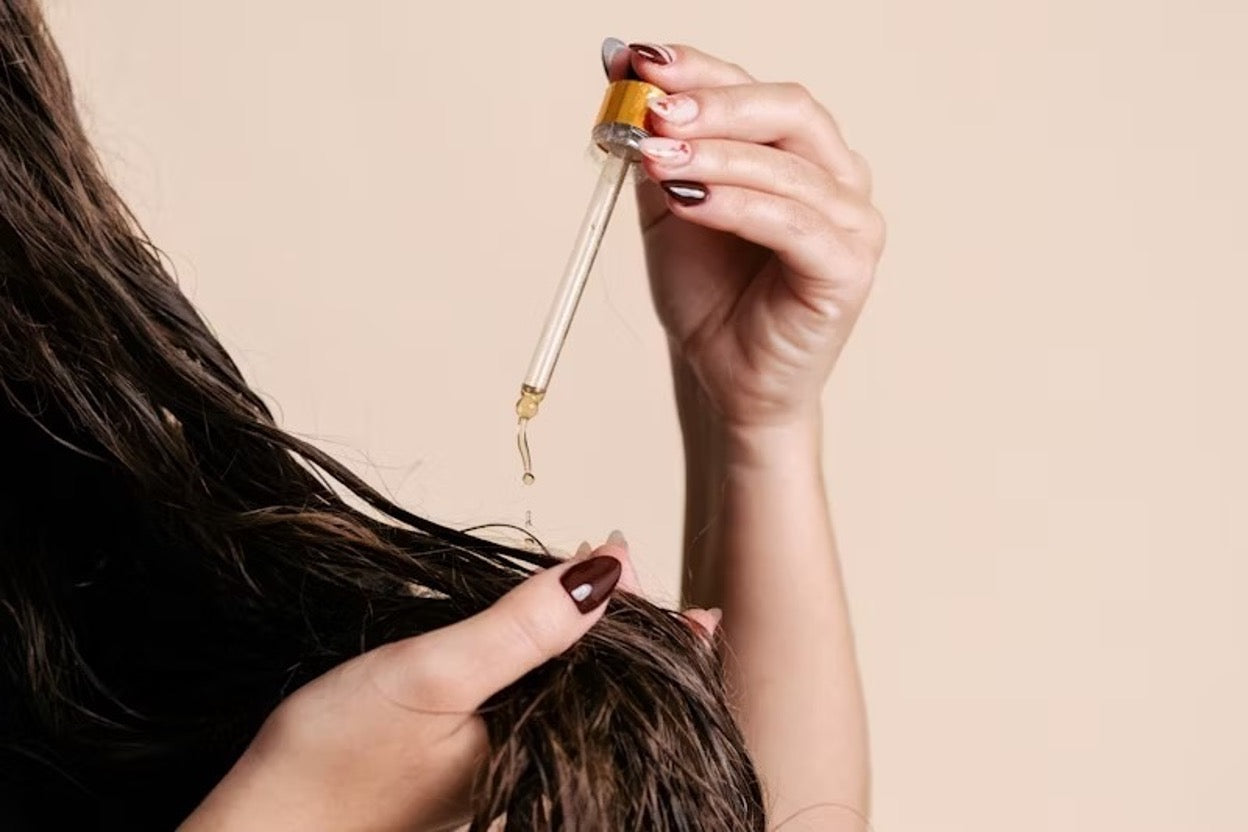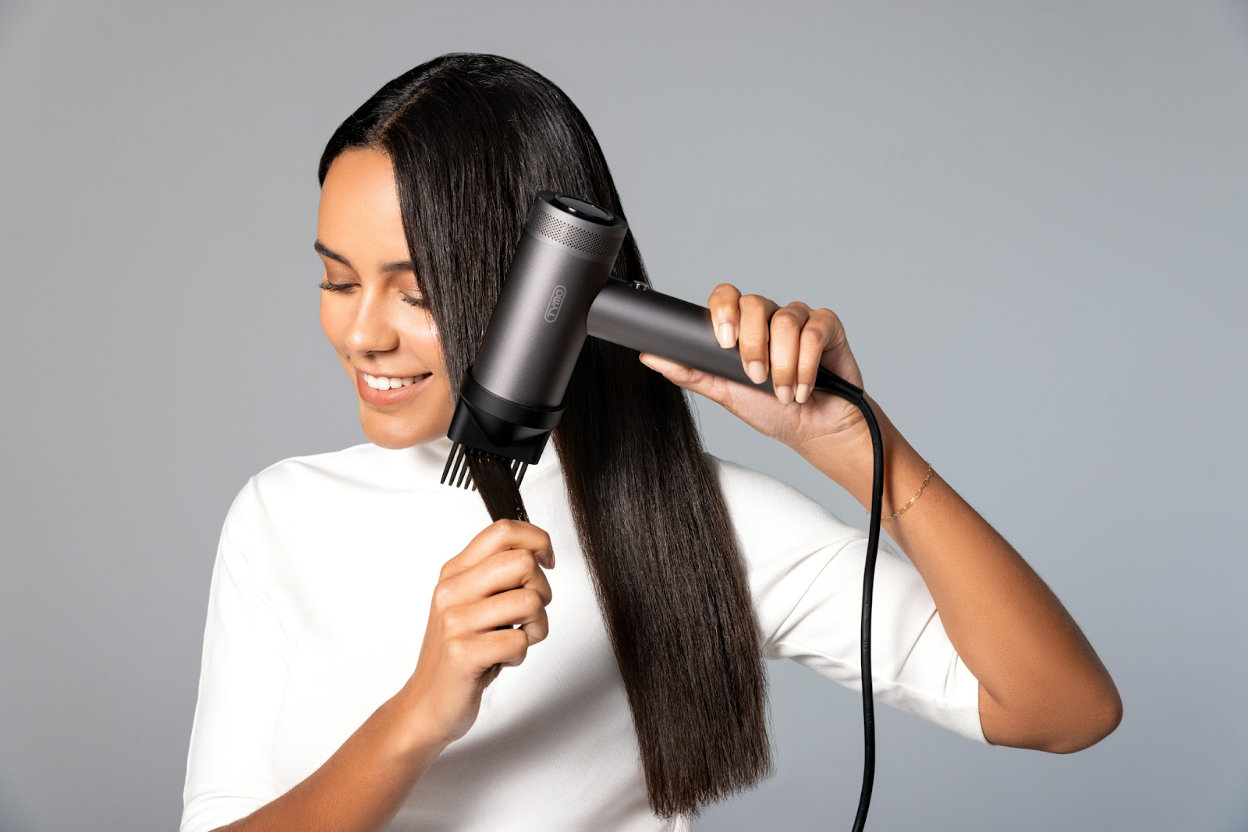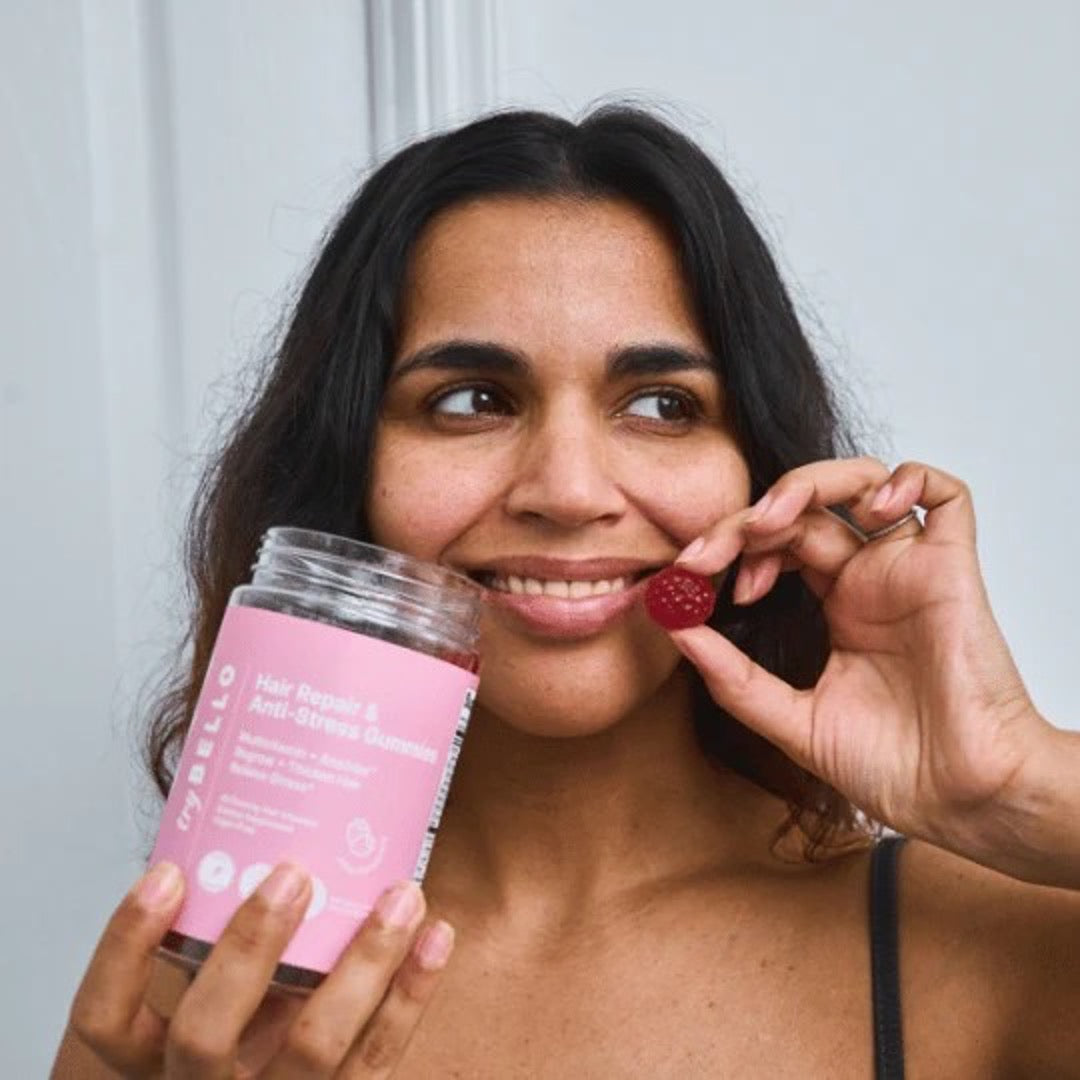Amla Oil vs Coconut Oil for Hair Growth: Usage, Pros & Cons
BY TRYBELLO
Nov 13, 2025

Key Takeaways
- Amla and coconut oils provide deep nourishment, strengthening hair from root to tip while preventing dryness, breakage, and dullness.
- Amla stimulates growth, improves scalp health, and protects follicles; coconut strengthens strands, retains length, and prevents breakage.
- Amla reduces shedding within weeks and promotes new growth in 4–6 weeks; coconut adds instant shine and improves manageability.
- Combining oils, amla on the scalp, and coconut on the lengths, maximizes hair health, elasticity, and resilience.
- Trybello Hair Helper Spray delivers visible results in just four weeks, promoting fuller, denser hair with safe, botanical ingredients suitable for all hair types.
Why Your Hair Needs Amla Oil or Coconut Oil
In a world filled with chemical-based hair products, natural oils offer a clean, nourishing alternative. For centuries, amla and coconut oils have been trusted across India and Southeast Asia to promote strong, healthy, and lustrous hair. These oils feed your scalp and strands with essential nutrients, supporting your hair’s natural growth cycle instead of masking damage.
Healthy hair depends on proper nourishment. While many commercial products give short-term shine, natural oils penetrate deep into the hair shaft, protecting it from within. This helps prevent dryness, breakage, and dullness, creating long-lasting strength and vitality.
“Doctor-Approved Natural Spray Rapidly Boosts Growth & Thickness.
Why 100,000+ Women Are Switching to Trybello!"
Join over 100,000 happy customers who've transformed their hair with our doctor-formulated spray in just 12 weeks, rated 4.8/5 by 40,000+ real users.
Proven Natural Ingredients
- • Caffeine Extract – Blocks DHT and boosts blood flow to follicles
- • Biotin – Direct scalp absorption, no pills needed
- • Castor Oil – Soothes inflammation and locks in moisture
- • Rice Water Extract – Strengthens hair and reduces shedding
120-Day Growth Guarantee: No results? 100% money back, no questions asked.
Common Hair Growth Challenges
Hair growth struggles like thinning, shedding, and breakage affect people of all ages. Stress, poor nutrition, pollution, and frequent heat styling all weaken hair over time. A neglected scalp can also block growth, as clogged or inflamed follicles prevent nutrients from reaching new strands. Oils like amla and coconut work holistically to soothe the scalp and fortify hair from root to tip.
Ancient Remedies, Modern Results
Long before synthetic products, natural oils were the foundation of hair care. Amla oil has roots in ancient Ayurveda, while coconut oil has been prized for generations in tropical cultures. These oils remain effective today because they work in harmony with your body’s natural systems, unlike silicone-based formulas that only coat the surface.
How Amla Oil Powers Hair Growth
Amla oil, made from the Indian gooseberry, is a time-tested remedy for stronger, fuller hair. Rich in vitamin C and antioxidants, it nourishes the scalp, supports collagen production, and boosts blood flow to hair follicles, creating the ideal foundation for growth. Its nutrients help extend the active growth phase of hair, making strands thicker and more resilient over time.
Why Amla Oil Stands Out
Unlike many oils, amla offers deep nourishment without weighing hair down. Its antioxidants fight follicle damage, while its natural acidity keeps the scalp balanced and healthy. Amla oil helps protect follicles from oxidative stress, one of the main causes of thinning and breakage.
5 Ways Amla Oil Supports Growth
- Boosts collagen for stronger hair structure.
- Balances scalp pH to prevent inflammation.
- Fights free radicals that age hair follicles.
- Improves circulation to deliver nutrients and oxygen.
- Combats microbes that can block healthy growth.
When used regularly, these actions work together to strengthen, thicken, and revive dull or shedding hair.
How to Use Amla Oil for Best Results

Amla oil is rich in antioxidants, helping protect hair follicles from damage while stimulating growth naturally.
Warm a small amount of oil and massage it into your scalp for 5–10 minutes using gentle circular motions. Leave it on for at least 30 minutes or overnight for a deeper treatment, then rinse and shampoo. For visible improvements, use amla oil two to three times a week, then reduce to weekly for maintenance.
Coconut Oil's Hair Growth Benefits
While amla oil stimulates new growth, coconut oil helps retain it, preventing breakage and promoting visibly longer hair. Thanks to its unique molecular structure, coconut oil penetrates the hair shaft deeply, reducing protein loss. This protection keeps strands strong, smooth, and less prone to split ends.
The Science Behind Its Strength
Coconut oil’s power comes from its rich lauric acid content, a fatty acid that binds to hair proteins and strengthens from within. Unlike mineral oils that simply coat strands, coconut oil integrates into the hair’s structure, making it more resilient to daily wear, styling, and environmental stress. Its antimicrobial properties also help maintain a balanced, healthy scalp.
4 Ways Coconut Oil Prevents Breakage
- Prevents fatigue by limiting swelling during washing.
- Protects the cuticle to reduce friction and tangling.
- Reinforces protein bonds within the hair shaft.
- Balances moisture to prevent dryness or over-hydration.
Best Application Methods

Coconut oil penetrates deep into the hair shaft, reducing protein loss and strengthening strands from within.
For deep nourishment, apply warm coconut oil to dry hair before washing, focusing on mid-lengths and ends. Cover with a cap and gently heat for 20–30 minutes to enhance absorption. For fine hair, use sparingly, just a small amount on the ends is enough. Consistent weekly use improves elasticity, reduces breakage, and helps maintain long, healthy strands.
Head-to-Head Comparison: Which Oil Wins?
Choosing between amla and coconut oil depends on your hair’s specific needs. Amla oil is ideal for stimulating new growth, improving scalp health, and reducing premature graying thanks to its rich antioxidants and vitamin C. Coconut oil excels at protecting and conditioning hair, reducing protein loss, preventing breakage, and adding shine and softness.
Which Oil Suits Your Hair Type
- Fine Hair: Amla oil strengthens without heaviness; coconut oil lightly on ends.
- Thick Hair: Both oils work well in generous amounts.
- Curly/Coily Hair: Coconut oil locks in moisture; amla oil strengthens curls.
- Oily Scalp: Amla balances sebum; avoid coconut oil on roots.
- Dry Scalp: Both hydrate; coconut oil gives faster relief.
Hair porosity also matters: high porosity hair benefits from coconut oil’s protein-binding properties, while low porosity hair absorbs lighter amla oil more easily.
Results You Can Expect
With consistent use, amla oil can reduce shedding in 2–3 weeks and show visible new growth around 4–6 weeks. Coconut oil delivers immediate improvements in shine and manageability, with length retention becoming noticeable after about a month. Over 3 months, amla oil can enhance density and thickness, while coconut oil strengthens and lengthens strands.
Efficacy and Limitations of both Oils
Understanding the strengths and limitations of each oil can help you choose the right one for your hair type and goals. Below is a breakdown of their main benefits and potential drawbacks.
Amla Oil
Amla oil is celebrated for its ability to stimulate growth and strengthen hair, but like any treatment, it has some limitations to keep in mind.
Pros:
- Stimulates new hair growth and improves follicle health
- Rich in antioxidants and vitamin C to protect hair from damage
- Helps reduce premature graying
- Lightweight and suitable for fine hair
- Strengthens hair from root to tip without weighing it down
- Slower visible results compared to conditioning oils
- Can feel slightly sticky if over-applied
- Less effective for preventing breakage or deeply moisturizing very dry hair
Coconut Oil
Coconut oil is widely praised for its protective and conditioning properties, though there’s a few things you should consider depending on your hair.
Pros:
- Penetrates hair shaft deeply, reducing protein loss and breakage
- Adds shine and smoothness
- Helps retain length by protecting ends
- Moisturizes dry strands and soothes the scalp
- Provides mild UV protection and antimicrobial benefits
- Can feel heavy and greasy on fine or oily hair
- Overuse may cause a buildup
- Less effective for stimulating new hair growth compared to amla oil
Key Insights on Amla Oil vs Coconut Oil for Hair Health
| Aspect | Amla Oil | Coconut Oil |
|---|---|---|
| Primary Benefit | Stimulates hair growth, improves scalp health, and reduces premature graying | Retains hair length, strengthens strands, and prevents breakage |
| Mechanism | High in vitamin C and antioxidants; boosts collagen, circulation, and follicle health | Rich in lauric acid; penetrates hair shaft, reduces protein loss, adds moisture and shine |
| Best Use | Scalp massage for growth; lightweight, suitable for fine hair | Apply to mid-lengths and ends; deep conditioning for thick, dry, or damaged hair |
| Hair Types | Fine, thick, curly/coily, oily, or dry scalp | Thick, curly/coily, dry scalp; fine hair sparingly at ends |
| Application Tips | Warm slightly, massage 5–10 mins, leave 30 mins–overnight; 2–3 times/week | Warm slightly, apply pre-wash, cover with cap and heat for 20–30 mins; weekly for maintenance |
| Immediate Results | Reduced shedding in 2–3 weeks; visible growth 4–6 weeks | Instant shine and manageability; length retention noticeable after ~1 month |
| Long-Term Results | Increases hair density and thickness over 3+ months | Strengthens strands, prevents split ends, enhances overall hair health |
| Pros | Stimulates growth, antioxidant-rich, strengthens from root to tip, lightweight | Deeply penetrating, reduces breakage, adds shine, moisturizes, mild UV, and antimicrobial protection |
| Cons | Slower visible results, can feel sticky if over-applied, less effective for moisture retention | Heavy on fine/oily hair, overuse causes buildup, less effective for new growth |
| Recommended Combination | Use on the scalp for growth stimulation | Use on lengths for protection and moisture |
Transform Your Hair with Trybello’s Hair Helper Spray

Trybello’s Hair Helper Spray works alongside natural oils for stronger, fuller hair.
If you're seeking a natural, science-backed solution to support healthier, fuller hair, search no further than Trybello Hair Helper Spray. Our innovative formula combines biotin, castor oil, and caffeine to nourish your scalp and stimulate hair growth from the root.
Key Benefits:
- Visible Results in Just 4 Weeks: Many users report denser, more voluminous hair within a month of consistent use.
- Clinically Studied Ingredients: The combination of biotin, castor oil, and caffeine has been shown to enhance and support hair health.
- Free from Harmful Chemicals: The spray is made with 100% botanical ingredients and is free from hormones, silicones, and parabens.
- Suitable for All Hair Types: If your hair is curly, straight, fine, or thick, the Hair Helper Spray is designed to work effectively across different hair textures.
Many users notice visible improvements in as little as four weeks, with denser, more voluminous hair and new growth along the hairline. The spray is formulated with 100% botanical ingredients, free from hormones, parabens, and silicones, making it suitable for all hair types, from fine and straight to curly and coily.
Frequently Asked Questions (FAQs)
Trending Topics
See our latests posts #TRYBELLO




